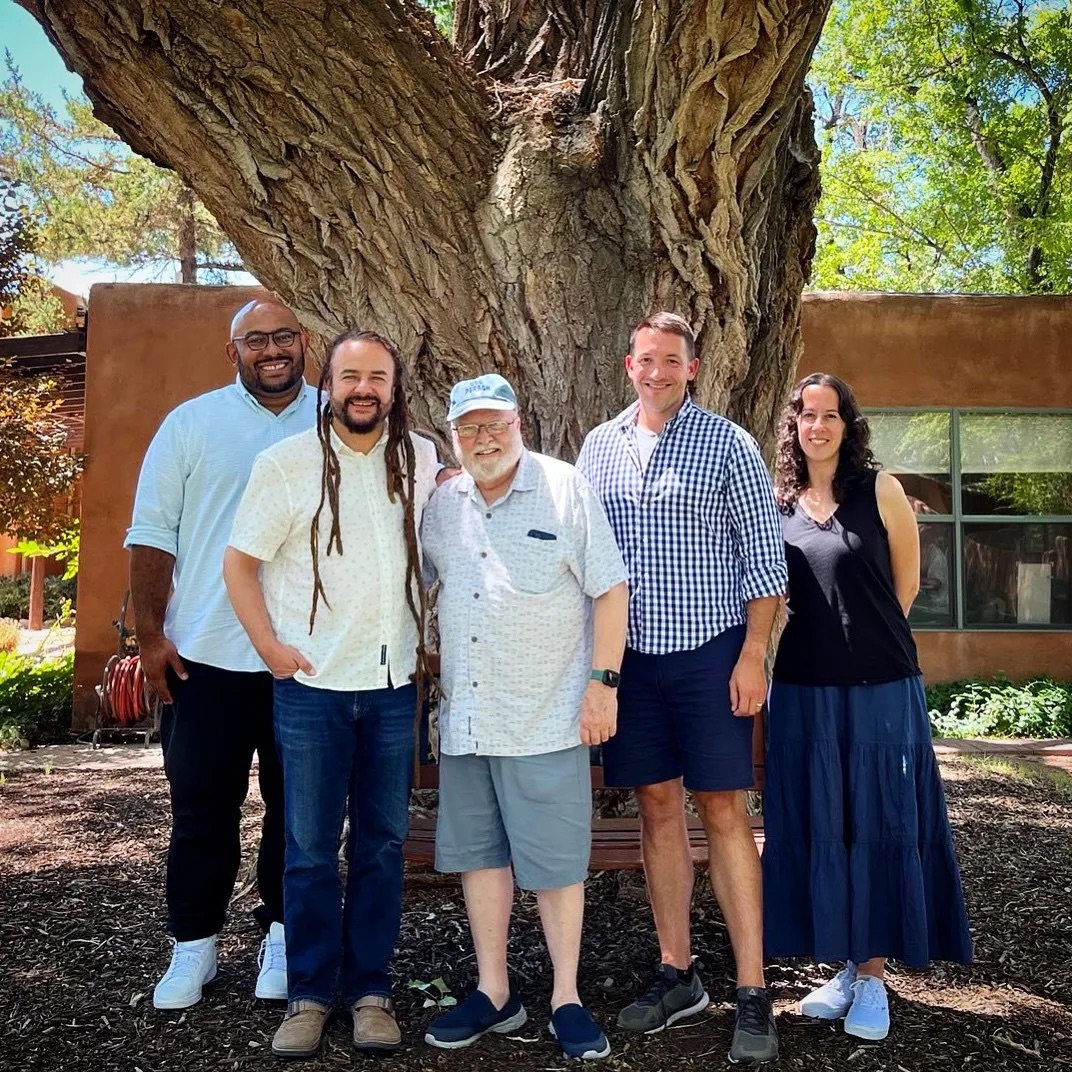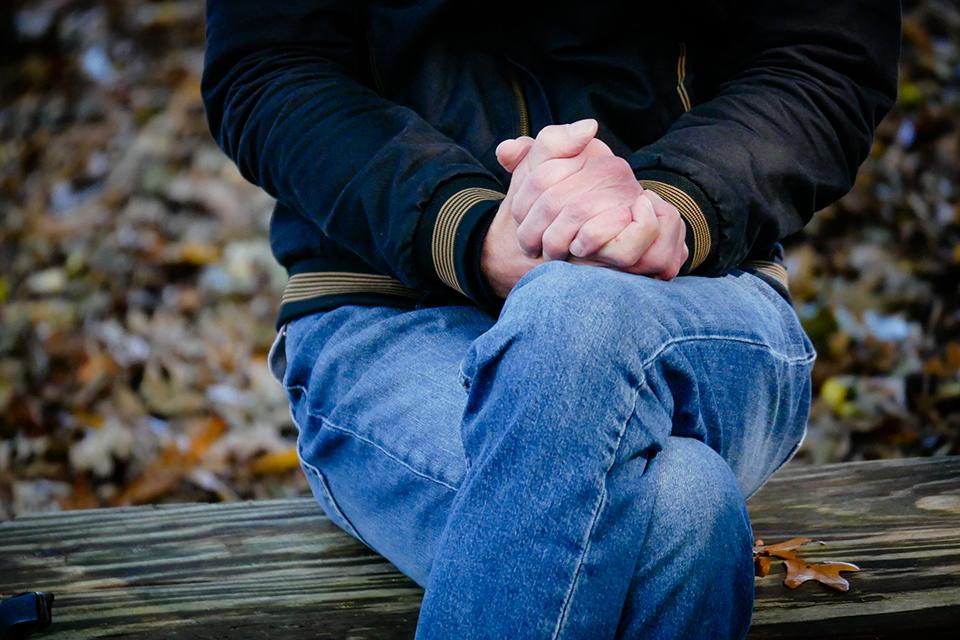Article by: Kristin Vieira Coleman, Center for Spiritual Imagination
If there’s one part of our community’s Rule of Life that surprises people the most, it’s probably this one: Adopt the Twelve Steps as a method of conversion of life, specifically by working the steps in a small group. It doesn’t surprise people who have worked the steps, of course—they know the spiritual value of the practice. But most people assume the steps are only for people with serious addictions. What do the steps have to do with living a contemplative life? To answer this question, it may be helpful to begin with a little history.
The Twelve Steps were written by “Bill W.”, cofounder (along with “Dr. Bob”) of Alcoholics Anonymous. Bill had been suffering from debilitating alcoholism that had lost him a promising career on Wall Street. Visits to doctors and hospitals provided only temporary relief. He considered himself a lost cause. Then one day, an old friend named Ebby Thatcher came to visit him. Thatcher had been an alcoholic, too, but told Bill he had found a cure…God! Bill rolled his eyes at the thought. “So that was it–last summer an alcoholic crackpot; now, I suspected, a little cracked about religion.1” To Bill’s surprise, Thatcher wasn’t there to convert him to religion. Instead, he offered him a way of life based on spiritual principles–universal principles–and invited him to choose a conception of God that worked for him.
Thatcher had come to this way of life through his engagement with an ecumenical Christian fellowship called the Oxford Group. The Oxford Group was made up of small groups of people from different denominations who shared their problems, prayed, and read together. They focused on living according to a way of life, rather than following a particular creed or belonging to a particular institution. If they found the groups helpful for their problems, they were encouraged to go out and help someone else find the same support and faith they had found. And so after Thatcher recovered from his own bout with alcoholism, he remembered his old drinking buddy Bill, and decided to pay him a visit.
Bill joined Thatcher at the Oxford Group meeting at a mission of Calvary Church in New York City, under the supervision of an Episcopal priest, the Rev. Samuel Shoemaker. Bill recovered from his alcoholism, and became convinced he could help other alcoholics find the same relief. Soon, the Oxford Group at Calvary was overrun with active alcoholics that Bill was attempting (and failing) to save—much to the chagrin of the non-alcoholic members of that group! Bill realized that the alcoholics needed their own meeting, where they could have a space to discuss the specific nature of alcoholism and its peculiar symptoms. With the help and encouragement of Rev. Shoemaker, Bill adapted the Oxford Group’s six tenets–1) complete deflation, 2) dependence on God, 3) moral inventory, 4) confession, 5) restitution and 6) continued work with others in need–into the Twelve Steps of Alcoholics Anonymous, which you can read here.
The steps have since been adapted for many addictions and compulsive behaviors–there are fellowships for gamblers, clutterers, debtors, underearners, food addicts, those with mental illness, workaholics, racists, sex addicts and love addicts, gamers, and more. For anyone with a particular addiction or compulsive behavior, these meetings not only share the Twelve Steps, they also provide the friendship and support of people who have the same experiences and struggles and can understand each other in a way no one else can.
At the Center for Spiritual Imagination, we have great respect for these fellowships and have no desire to create a replacement or alternative to them. We have found, however, that there are many people who don’t fit it into a particular category or pattern of addiction, but who can benefit tremendously from practicing the Twelve Steps in a community setting. We have also found that the Christian contemplative tradition shares many principles and practices found in the Twelve Steps. Many other contemplatives have noticed this. Fr. Richard Rohr expounded on his admiration of the Twelve Steps in his book Breathing Under Water: Spirituality and the Twelve Steps. He wrote, "I believe the Twelve-Step programs are a movement of the Spirit in our time. In creating Alcoholics Anonymous in 1935, Bill Wilson and Dr. Bob Smith, with typical American pragmatism, designed a truly practical program that really worked to change lives."2 Fr. Thomas Keating discussed the wisdom of the Twelve Steps for all those on a spiritual path in Divine Therapy & Addiction: Centering Prayer and the Twelve Steps.“The steps are really an engagement in an ever-deepening relationship with God,” said Fr. Keating. “Divine love picks us up when we sincerely believe nobody else will. We then begin to experience freedom, peace, calm, equanimity, and liberation from cravings for what we have come to know are damaging—cravings that cannot bring happiness, but at best only momentary relief that makes the real problem worse.” Fr. Keating believed the steps could offer the best way of organizing and creating spiritual community for those who are “Spiritual But Not Religious” or can’t find a home in religion in a world where religious institutions don’t seem to be able to speak to people’s longings.

There are some in our community who are in recovery and therefore had previous experience with the steps, but many more who had perhaps read about them but never had an opportunity to practice them. By adapting the steps for our novitiate formation program, we created an opportunity for each novice to engage in the steps in the context of the Christian contemplative tradition, without requiring any adherence to Christian doctrine and dogma. While some were skeptical at first, nearly everyone who has been through our formation has found the steps to be the most transformative aspect of their journey with us. It works–it really does!
This year, we are experimenting with sharing this practice for those outside the novitiate formation program. This is not just an opportunity to practice the steps on your own–this is a chance to find community support and accountability for your practice. The steps are simple. They are sometimes summarized in this way:
Trust God.
Clean House.
Help Others.
Simple, yes—but not easy! How do we trust God when we can’t even be sure She/He/They exist? How do we face our mistakes without sinking into self-pity or resentment? How do we develop the capacity to help others without our egos, insecurity, or pride getting in the way?
Yet the fruits of this practice are extraordinary:
“If we are painstaking about this phase of our development, we will be amazed before we are halfway through. We are going to know a new freedom and a new happiness. We will not regret the past nor wish to shut the door on it. We will comprehend the word serenity and we will know peace. No matter how far down the scale we have gone, we will see how our experience can benefit others. That feeling of uselessness and self-pity will disappear. We will lose interest in selfish things and gain interest in our fellows. Self-seeking will slip away. Our whole attitude and outlook upon life will change. Fear of people and of economic insecurity will leave us. We will intuitively know how to handle situations which used to baffle us. We will suddenly realize that God is doing for us what we could not do for ourselves. Are these extravagant promises? We think not. They are being fulfilled among us-sometimes quickly, sometimes slowly. They will always materialize if we work for them.”3
We hope you will consider joining us in this practice in 2025. (You can learn more and register here). And if you do need help with a particular addiction or compulsive behavior, you are not alone. You can find a list of 12 Step groups here.
Kristin Vieira Coleman is a co-founder and Program Director at the Center for Spiritual Imagination, assisting in developing the new monastic Community of the Incarnation's formation program as well as the Center’s public events. Kris has been an active lay minister for over a decade, leading small groups and teaching classes on contemplation, 12-step spirituality, and Scripture. She lives in Brooklyn, NY with her husband Jeremy.
